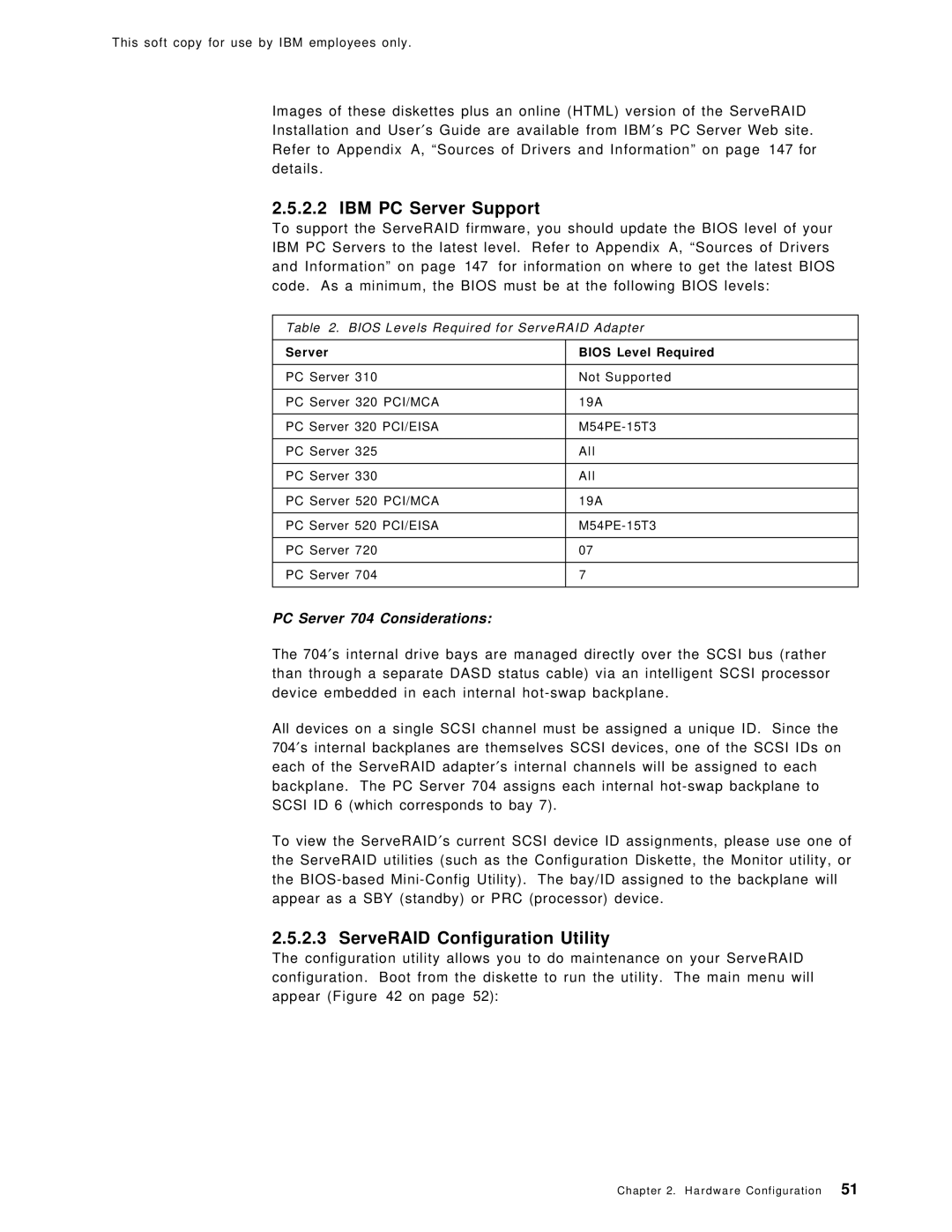
This soft copy for use by IBM employees only.
Images of these diskettes plus an online (HTML) version of the ServeRAID Installation and User′s Guide are available from IBM′s PC Server Web site. Refer to Appendix A, ªSources of Drivers and Informationº on page147 for details.
2.5.2.2 IBM PC Server Support
To support the ServeRAID firmware, you should update the BIOS level of your IBM PC Servers to the latest level. Refer to Appendix A, ªSources of Drivers and Informationº on page 147 for information on where to get the latest BIOS code. As a minimum, the BIOS must be at the following BIOS levels:
Table 2. BIOS Levels Required for ServeRAID Adapter
Server | BIOS Level Required |
|
|
PC Server 310 | Not Supported |
|
|
PC Server 320 PCI/MCA | 19A |
|
|
PC Server 320 PCI/EISA | |
|
|
PC Server 325 | All |
|
|
PC Server 330 | All |
|
|
PC Server 520 PCI/MCA | 19A |
|
|
PC Server 520 PCI/EISA | |
|
|
PC Server 720 | 07 |
|
|
PC Server 704 | 7 |
|
|
PC Server 704 Considerations:
The 704′s internal drive bays are managed directly over the SCSI bus (rather than through a separate DASD status cable) via an intelligent SCSI processor device embedded in each internal
All devices on a single SCSI channel must be assigned a unique ID. Since the 704′s internal backplanes are themselves SCSI devices, one of the SCSI IDs on each of the ServeRAID adapter′s internal channels will be assigned to each backplane. The PC Server 704 assigns each internal
To view the ServeRAID′s current SCSI device ID assignments, please use one of the ServeRAID utilities (such as the Configuration Diskette, the Monitor utility, or the
2.5.2.3 ServeRAID Configuration Utility
The configuration utility allows you to do maintenance on your ServeRAID configuration. Boot from the diskette to run the utility. The main menu will appear (Figure 42 on page 52):
Chapter 2. H a r d w a r e Configuration 51
